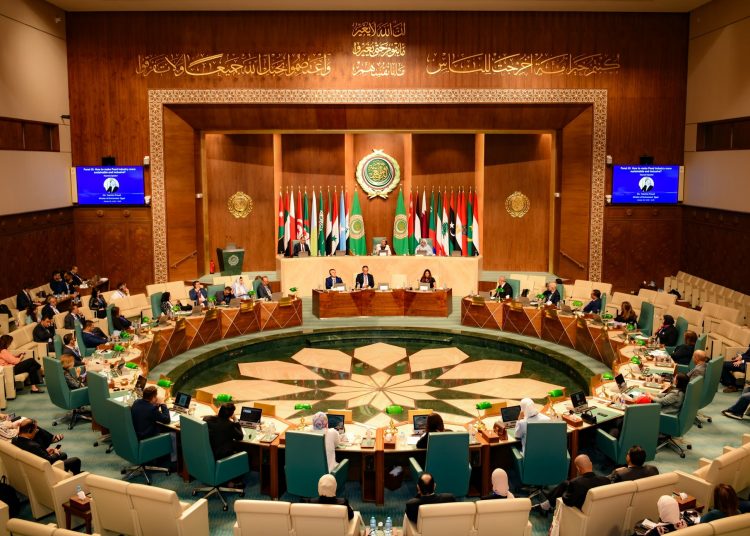Egyptian Minister of Environment Yasmine Fouad, participated as a keynote speaker in the discussion session ‘How to make the food industry more sustainable and inclusive’ within the sessions of the high-level conference on the food industries and their impact on food security.
The session was hosted by the General Secretariat of the League of Arab States and the Union for the Mediterranean and with the support of the German Cooperation Agency GIZ.
The minister said this conference came at an opportune time to consider the challenges and solutions to achieve food security through a more sustainable and comprehensive food industry, while the world, especially this region, is suffering from water scarcity, deterioration of natural resources, and extreme climate conditions, and a few weeks before the start of the climate conference COP28.
The minister focused on three important challenges related to achieving food security, namely the unprecedented rise in global temperature that causes climate change, and desertification, which is a major challenge facing the Arab countries, especially with some of them suffering from water scarcity, and the severe deterioration in bio-diversity.
Regarding the challenge of climate change, Fouad pointed out the need to reduce emissions from the agricultural sector and adapting to the effects of climate change on agricultural production.
She pointed out that the agricultural sector contributes to generating between 19-29 per cent of the total global greenhouse gas emissions, and crop and livestock production contributes about 10-12 per cent. This is in addition to the fact that wrong practices in the agricultural sector cause the destruction of 80 per cent of forests worldwide.
Fouad pointed out the link between the challenge of desertification, climate change, and food security, as global warming increases the risk of desertification, leading to a decline in land productivity and food quality.
The loss of biodiversity and its impact on climate change also affects the instability of the chain of sustainable ecosystems.
Fouad stressed the importance of financing mechanisms, especially to encourage the private sector to invest in the sustainable food industry, and the role of development banks in granting guarantees to reduce risks for the private sector to grow new crops that are more resistant, in addition to looking at the food system as a whole from the cultivation stage to manufacturing. Her speech also tackled how to deal rationally with natural resources, water use and reuse, the quality of fertilizers used, and how to deal with agricultural waste.
The minister referred to Egypt’s success story in dealing with rice straw and transforming it from a polluting waste that contributes to the black cloud phenomenon into a product with economic returns.
The Minister also stressed the importance of sustainable food industries within the transition to more sustainable lifestyles to confront the effects of climate change, which poses a major challenge to achieving food security.
These industries help improve the social and economic standards of living and providing job opportunities, in addition to environmental benefits such as reducing greenhouse gas emissions, conserving natural resources, improving the level of health, and benefiting from renewable energy to generate energy instead of fossil fuels.






Discussion about this post